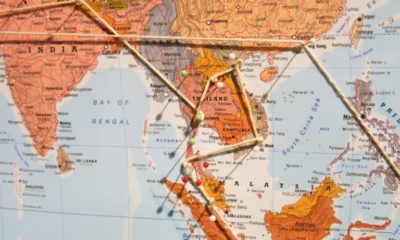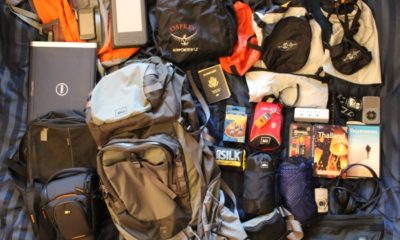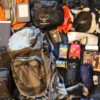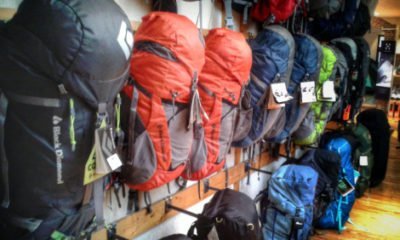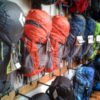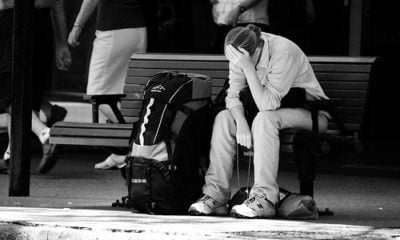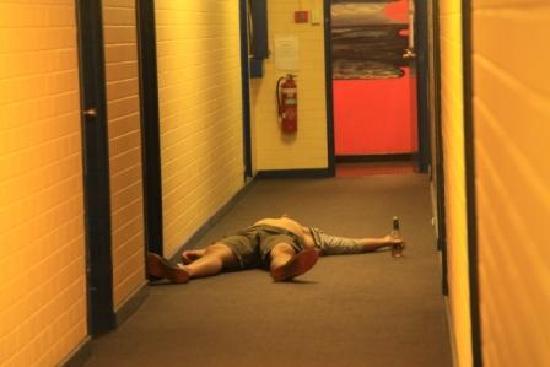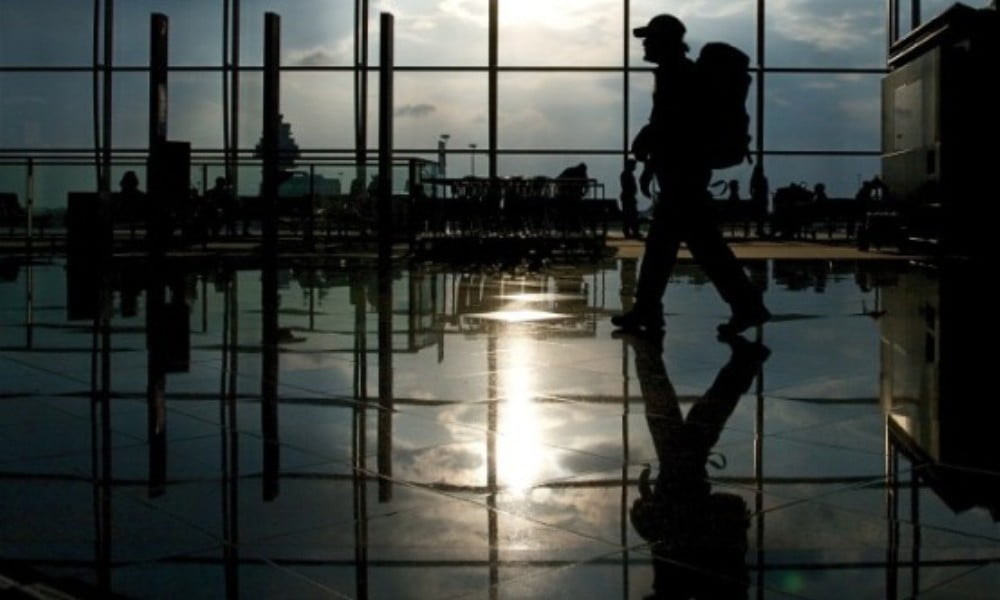Travel Safety and Security Tips
It is a myth that backpacking is unsafe – generally speaking, backpacking is safe – hundreds of thousands of people go backpacking each year without incident and very few people experience any safety or security issues.
Safety is often a concern whilst travelling. Whilst the majority of people on this Earth are good, honest and kind hearted (you will realise this even more once you go travelling), there are a small number of people that aren’t. Therefore it is important to have your wits about you when abroad.
I will start by saying that I personally have never had any safety or security problems whilst travelling – other than having a bottle of half empty shower gel going missing after I left it in the shower (I was gutted!).
It is a bit of a Myth That Backpacking Is Unsafe – generally speaking, backpacking is safe – hundreds of thousands of people go backpacking each year without incident and very few people experience any safety or security issues.
If you follow the basic advice below and use your common sense then neither should you.
Destination Safety
You should always check your country’s foreign office for information on how safe your destination is before travelling abroad (the UK foreign office site is www.fco.gov.uk). This will provide the official position of your government on that destinations safety.
However a travel warning from your foreign office doesn’t necessarily mean you can’t go. Often there may only be a small part of that country that isn’t safe, but the foreign office will declare the whole nation unstable. Therefore it is a good idea to cross check with other foreign offices and bureaus.
Read here if you are looking for information about Health Safety Tips.
What To Do If Your Destination Becomes Unsafe
You are not likely to experience political change, especially outside of cities, but it can happen – military coups in Bangkok seem to happen every 3 or 4 years.
Usually tourists are not a target and your trip will be unaffected, but you should always avoid any mass protest or demonstration when travelling overeas as they can often become dangerous and violent.
If you find yourself in the highly unlikely situation of feeling unsafe or a target, you have two options. The first is to go to your embassy. Be aware that embassies can sometimes become targets themselves – if your embassy is a target, then neighbouring embassies will often provide refugee – i.e. a British Citizen, should be fine to go to the Australian, American or Canadian embassies and vice versa.
Tip: Note down embassy addresses before you go.
The second option is to get out as quickly as possible. This may be as simple as getting a bus out of town, but as complex as calling the foreign office back home for specialist advice. I must reiterate that this is extremely rare, and has not happened to me or anyone I have met.
Safety Precautions And Tips For Females
The advice below is intended for all female travellers, but these are particularly important safety tips for females travelling solo in high risk destinations such as India.
Female travellers should dress appropriately when travelling to certain destinations. You should respect religious customs in regards to dress code and avoid sexual harassment by dressing conservatively. Consider wearing shoes you are capable of running in when in high risk areas.
Avoid being alone after dark. If it is unavoidable stick to well lit and crowded areas.
Keep a personal alarm with you when you go to places where you may be vulnerable. Make sure it is easy to access – in your pocket or attached to (not in) your bag.
Western women can often appear promiscuous to some cultures, so if harassed either ignore it or tell them you don’t like it and they should back off. If followed walk into a store or hotel and tell the owner. If necessary ask them to call the police.
If grabbed or attacked, scream as loud as you can or activate your personal alarm, don’t try to plead or bargain. Fight back, use any objects around you and aim for the head, knees or privates.
If you are sharing a dorm with another traveller that is making you feel uncomfortable, you should let them and the hostel management know – ask to move rooms if necessary. Most hostels provide female only dorms, so if you are uneasy about sharing with men this is the ideal solution.
How To Avoid Getting Robbed
A similar principle to not getting robbed anywhere – use your common sense.
Don’t show off your valuables, particularly not in a risky area or in a country where valuables are uncommon or hard to come by.
Never have too much on your person and ensure valuable items are secure and concealed, either in a zipped pocket or locked bag. Keep other valuables safe in your hostel.
Blend in. What I mean by that is don’t act like a tourist. Don’t sift through that big wad of notes in your wallet, looking for the right currency.
Seek safety advice from your hostel. Don’t go to an area that you have been advised not to or an area where you will stand out and become a target.
Stay Alert. Especially when at ATM machines and when handing over currency. Prime locations for pickpockets are markets and transport terminals.
If you are going to be drinking, don’t take any valuables out with you and be extra cautious.
Don’t fall asleep on public transport or store items you don’t want to lose in the overhead compartments. From what I have heard from fellow travellers this is the most common scenario where people have items stolen.
Don’t keep valuables together. Particularly cash – always have an emergency stash, i.e. in a pair of socks. Documents also, you should have photocopies of your passport kept separately from the original.
I am not a big fan of security pouches/ wallets/ belts, I believe they act like magnets to thieves – alerting them to the fact you have something valuable on you. If you insist on taking one, never get it out in public, always move to a discreet place.
If you feel under threat, look for exit points and consider leaving or even running.
How To Protect Your Belongings In Hostels
Everyone has these false misconceptions that it is the locals who are out to get their belongings, but the sad reality is the biggest threat is from your fellow travellers.
Pretty obvious really, considering you are sharing a room with an average of 6 strangers per night. However it is important to remember only a tiny minority of people resort to theft.
Most backpackers aren’t wealthy and it can be very tempting for some people to help themselves – even to things you wouldn’t expect. Don’t put anything past people – from chapsticks to chargers; tuna to toothpaste – I’ve heard the lot.
The problem is most people are too trusting; the golden rule in hostels though is not to trust anyone with your belongings, particularly not complete strangers.
The majority of crime is opportunistic, not planned.
Leaving your iPhone on charge unattended is just giving someone a opportunity to steal it – don’t give people opportunities.
If you are leaving something unattended ensure it is locked away – that goes for when you are sleeping too. Always keep valuables in a locker or hostel safe.
Scams
Although I mentioned above I have never been a victim of crime whilst backpacking, I have certainly come across a scam or two – and you will too.
They target tourists, so you are likely to find them in most tourist destinations you visit, particularly in developing countries.
Some scammers have very good methods of getting your money. Go on gut feeling, you can usually sense when something is awry and if it sounds too good to be true, then it probably is. Never hand over money, possessions or details until you can be sure everything is legitimate.
Only use licensed taxis, don’t use cards in non reputable stores or hostels – again common sense is key, use it and you won’t fall victim.
Personally, the hotbed for scams is Hanoi, Vietnam – every hour I was there I was targeted by scammers.
Here is a list of some scams you may encounter, some more serious than others:
| Scams |
|---|
| The Over Friendly And Generous Salesman. Someone starts a conversation with you on the street, usually very friendly; “where are you from? … Oh I love it there… Do you know such and such?”. After a while they will offer you a “mates rate” package for a massage for example, which they will arrange for you over the phone. However when you get there, you find the owner of the massage parlour wasn’t aware of this deal, or the parlour doesn’t even exist.
How To Avoid: After a few of these you just know, and ignore the conversation in the first place. Never pay for something until you can see it. |
| The English Student. Again someone will come up to you being very friendly, they will ask if they can talk with you in English because they are learning. They then ask for help with student fees or books, etc. This may sound like it could be genuine, but it happened to me 3 times in 3 days in Hanoi. There are many scams like this – that play to your emotions – but most of these sob stories are scams.
How To Avoid: Just say sorry, I can’t help or I have no money on me. If you feel bad then donate to a registered charity. |
| The Scooter Salesman. A guy on a moped will pull up next to you and offer to sell you something. Usually they will just take your money and ride off without giving you the product.
How To Avoid: Simple, don’t buy anything from someone sitting on a getaway vehicle. |
| The Distracter. Extremely common. A distraction will be put in place like children coming up to you, people wanting a photo with you, someone spilling something on you, etc. All the while someone else will be picking your pocket.
How To Avoid: Don’t carry too many valuables on your person. Ensure your bag is locked and pockets are zipped. Be alert and protect your valuables when smoke screens like this are put in place. |
| The Fixer. You will be walking along the street minding your own business when someone will start pointing at your shoes (or bag, or whatever) saying it is broken and needs fixing. Then one or two more people will start saying the same thing. They will try to fix your shoe whilst you are still walking and charge you for the service.
How To Avoid: This happened to me on more than one occasion. I started by just saying “no”, if that didn’t work I crossed the street and then finally would start running. |
| The Drug Seller. Simple, someone will offer you drugs. If you buy them, they will either tip off a police officer for a reward, or have a fake police officer, in on the scam, come along and make you pay a fine to avoid jail. Even worse, and not a scam – they could actually be an undercover police officer.
How To Avoid: Obviously don’t buy drugs. If you absolutely have to, buy from other travellers, or from someone a traveller has said they have brought from before. |
| The Fake Police Officer. Someone claiming to be a police officer will ask to see your passport and claim it is forged, or claim money you just gave to a vendor was counterfeit, and ask you to pay a fine.
How To Avoid: A difficult one, but extremely rare as the penalties for the scammers are very high. Tell them you have been advised to always pay fines at a local police station to avoid con-artists. If they are genuine police officers they should have no problem with this. Never get into an unmarked police car, ask for them to take you to the station in a marked one. If they have a problem with this they are most likely a scammer, so call the police or your embassy. |
| The Fake Ticket. Someone will sell you a bus or other ticket, that is actually just a piece of paper with writing on it.
How To Avoid: Buy direct, from an accredited travel agent, or from somewhere a fellow traveler has successfully bought from. |
| The Credit Card. Your card will be scanned twice or numbers copied.
How To Avoid: Never let your card out of your sight. Make sure merchants swipe your card in front of you – if they “need to take it out the back to the machine”, ask to follow them. Ask for, and keep receipts. |
| The Border Crossing. You will be asked to take something across the border, for someone waiting on the other side. This almost certainly means you are being used as a drug mule – and if you get caught doing that in some places it is goodbye for you.
How To Avoid: Never, ever take anything across a border that isn’t your own. Ensure your bag hasn’t been tampered with as well. |
If You Become A Victim Of Crime
Firstly, if you are ever threaten with a weapon always give up your belongings, it really isn’t worth it, especially as you should be fully insured. Also these days it really doesn’t take long to cancel and get replacements for passports, cards, etc.
You must act immediately if you are a victim of crime. The first step is filing a police report (this could be vital when claiming your insurance). You may however need/ want to visit your embassy first depending on the nature of the crime.
Dialing 112 in most countries will redirect you to the emergency services.
You will also need to cancel any items stolen such as cards as soon as possible.
Contact your insurance company (which is often free), they may help you cancel cards and provide emergency cash or aid.
Let your family or friends know, they can help with cancellations and emergency money too, but will also help you with the moral support you need.



